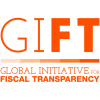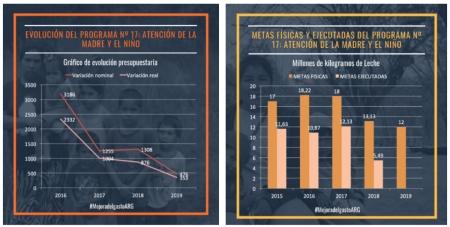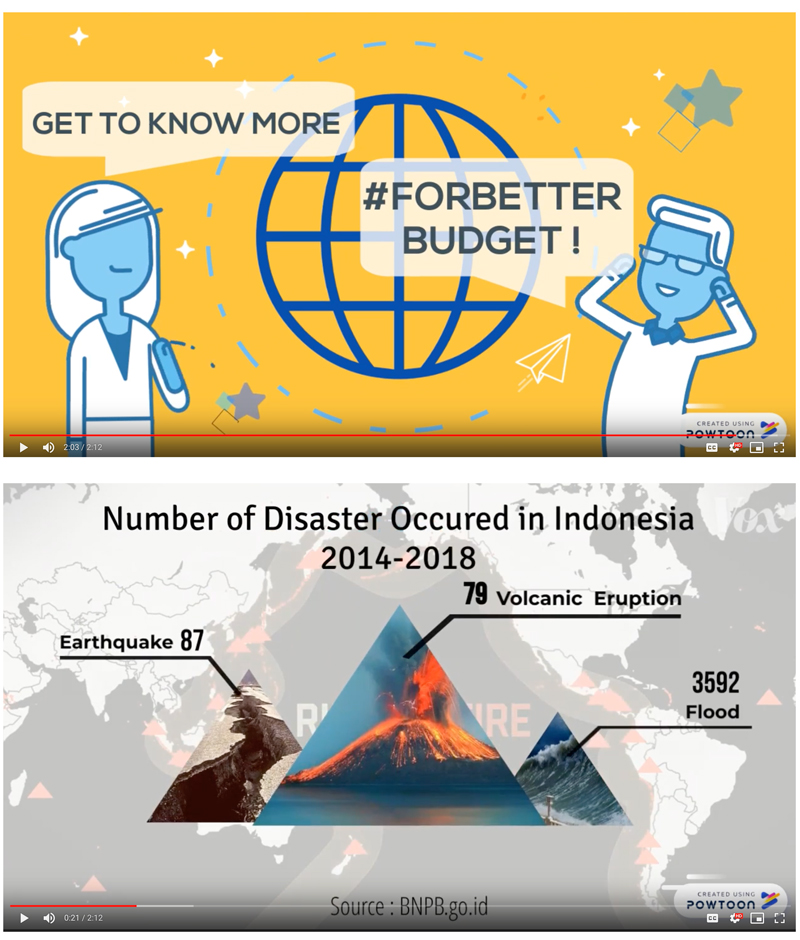
In achieving openness, transparency is only one side of the equation, and its impact will depend on the use given to relevant information and how to close the feedback loop to create better accountability. Government-civil society coalitions are light touch and scalable participation initiatives that enable collaboration in a semi-formal flexible setting for dialogue among different stakeholders, to achieve specific objectives of improving certain processes and policies that affect sustainable development. The coalitions bring together the GIFT agenda in different levels, as they: rely in the publication of digital tools, including the better collection of data, user-centered publication and open data; encourage the adoption of public participation mechanisms by helping break barriers related to questions about the possible effects of participation, while simultaneously establishing bases for trust and collaboration among stakeholders of different sectors; and are strengthened through peer-collaboration at the international level, as practitioners from the different countries from civil society and government co-create the mechanisms and share their specific focus, methods and lessons learned.
What is it?
It is an open data expedition, in which government and civil society call on the population to explore open public spending data and relate it to additional data and contextual information to present results or findings of the implications of budget allocation and implementation.
The topics were selected based on the Sustainable Development Goals (SDGs), considering the critical role of the public budget for achieving them, and were restricted to three categories selected for their relevance in the current debate:

Objectives of the #BetterBudget Dataquest
As the better budget name suggests, it is an opportunity to find new analysis on specific topics and innovative solutions to improve budget allocation and its implementation. In addition, the process is an opportunity for open data publishers to generate budget literacy and data use capacities, as well as an opportunity to observe the challenges that users can face while using the data, to improve its publication.
Target audience
The Dataquest is aimed at a population with intermediate to advanced knowledge in data science, economics or journalism (or similar).
Results of the 2019 edition
The first edition of the #BetterBudget Dataquest was held in 2019, by invitation for the Global Initiative for Fiscal Transparency (GIFT) Stewards and partners as part of the International Open Data Day. The events were organized in Argentina, Colombia, Costa Rica, Indonesia, Mexico, Uruguay and South Africa, all with the participation of the government and civil society. Below are some relevant in three countries representing different approaches of the Dataquest:
Argentina
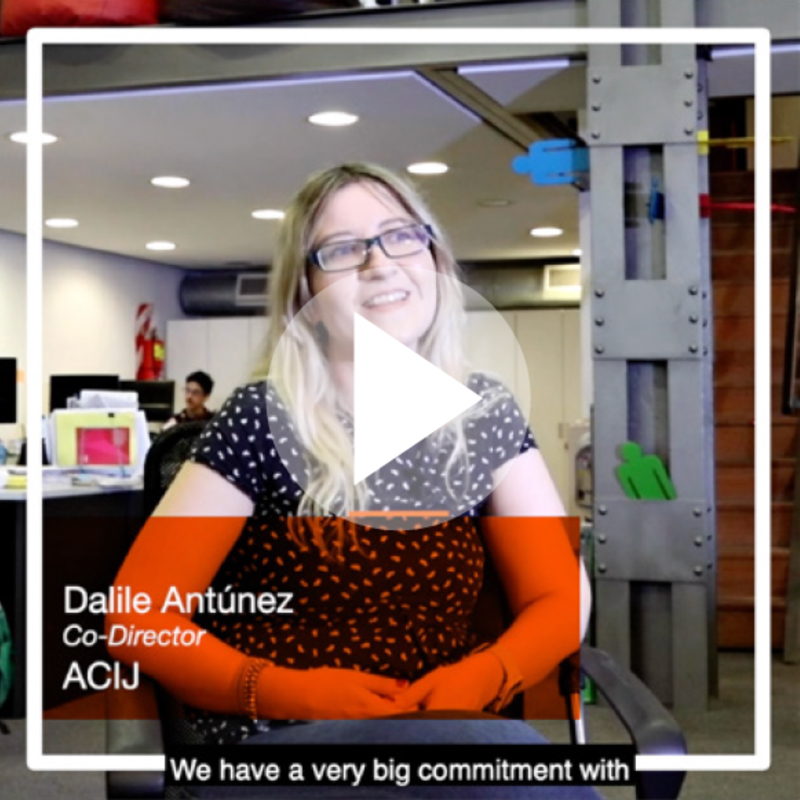 Organized by the Civil Association for Equality and Justice (ACIJ), it had mentoring by the Ministry of Finance of the country and the Latin American Open Data Initiative (ILDA). Participants oriented their analysis, primarily, to budgetary performance based on the physical goals of some budget programs. In this particular case, all teams focused on gender issues.
Organized by the Civil Association for Equality and Justice (ACIJ), it had mentoring by the Ministry of Finance of the country and the Latin American Open Data Initiative (ILDA). Participants oriented their analysis, primarily, to budgetary performance based on the physical goals of some budget programs. In this particular case, all teams focused on gender issues.
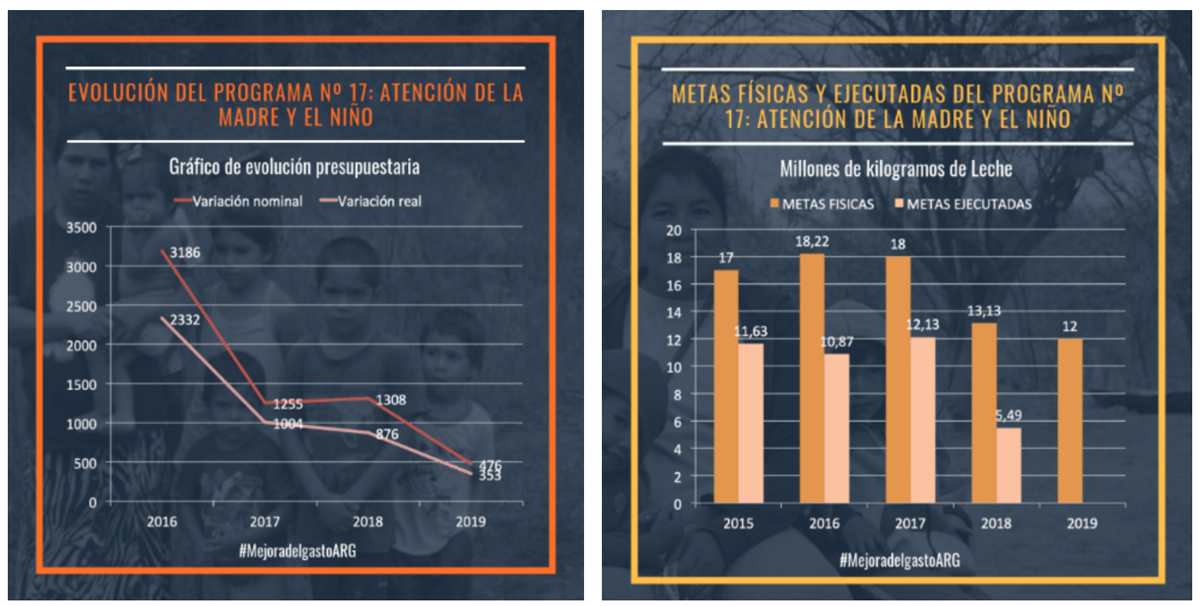 In particular, the work of one of the groups found that the Mother and Child Care program of the Ministry of Health reduced the delivery of fortified milk powder to children between the ages of zero and two in the 2014-2018 period, and that the amount of milk planned for delivery had been sub-executed, affecting thousands of infants (read research article).
In particular, the work of one of the groups found that the Mother and Child Care program of the Ministry of Health reduced the delivery of fortified milk powder to children between the ages of zero and two in the 2014-2018 period, and that the amount of milk planned for delivery had been sub-executed, affecting thousands of infants (read research article).
Based on this, the Ministry of Finance has changed the form of publication of open budget data and physical goals, and improved dialogue to improve the establishment and monitoring of performance targets.
Costa Rica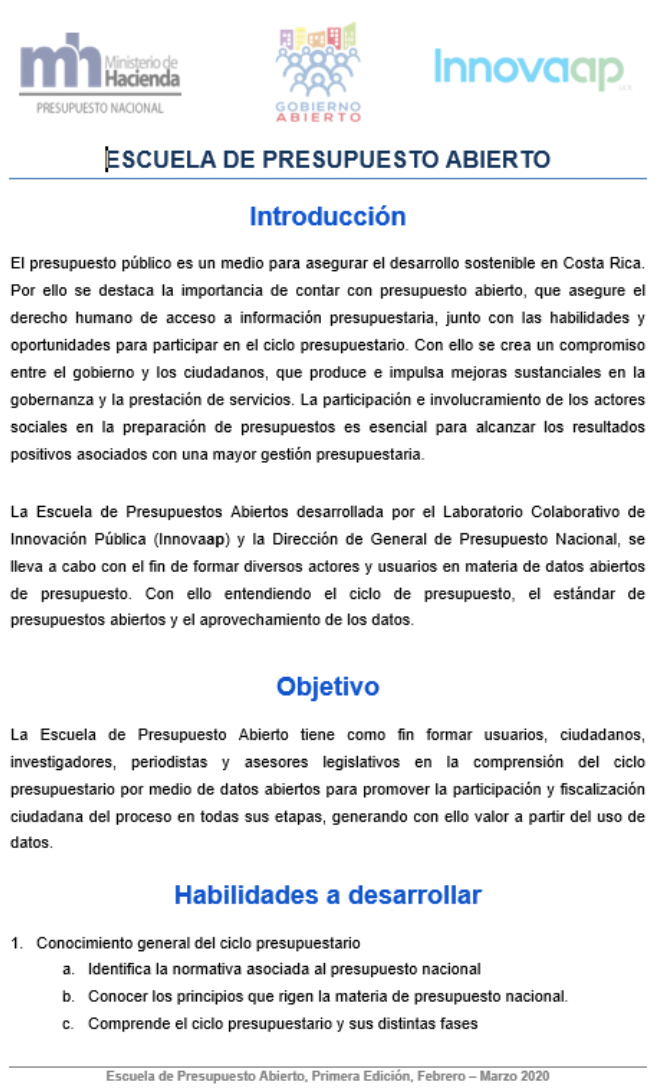
Since the budget data was not yet available in open formats, the event focused on presenting how the country could eventually have a #BeterBudget Dataquest and what would be required. From this, Innovap, an independent academic organization, and the Ministry of Finance, signed an agreement to jointly develop a budget literacy initiative, called the Budget School, and begin the publication of open data with GIFT support.
The Open Budget School began on February 4, 2020 and will end with a Dataquest. This will reflect a breakthrough, not only in terms of publishing open data but also in developing government-civil society dialogue.
Indonesia
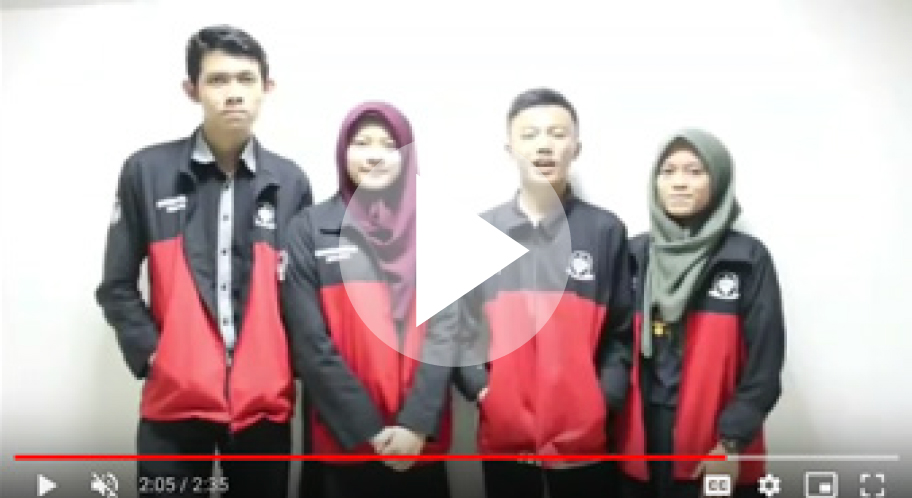 In this case, the #BetterBudget Dataquest showed the potential of implementing this sort of activity with university students, as a way to improve the involvement and analysis of the budget. It was carried out on campuses of the PKN STAN University, first in Jakarta and then in Tangerang.
In this case, the #BetterBudget Dataquest showed the potential of implementing this sort of activity with university students, as a way to improve the involvement and analysis of the budget. It was carried out on campuses of the PKN STAN University, first in Jakarta and then in Tangerang.
Following the rules of the event, the conveners invited the students to form teams of a maximum of five people with different profiles. The results and analyzes were among the most creative of the 2019 edition (click on the image to reproduce the video generated by the winning team), evidencing the importance of the voice of young people in improving public policies.
2020 Edition
In the new edition of the #BetterBudget Dataquest, we will seek as a priority to improve the quality of the results and close the feedback loop with the government, to ensure that the results are taken into consideration for the improvement of the public financial management, either in the program design, budget allocations or setting of targets. For this, in addition, we will have the collaboration of UNDP Latin America, who through its national offices will support local government and civil society organizers, as necessary, to improve the impact of the exercise, and as an incentive to Participation will offer winners to present their results to UNDP representatives.
Finally, regarding the logistic aspect, the generic Rules of Operation that can be consulted in this link will be used as a base, and can be adapted according to the variants of the event that will be carried out in each country. It should be noted that, considering the experience of 2019, the event will not be limited to the International Open Data Day, but may be held between the months of March to May to provide flexibility to the organizers, considering the local holidays and contexts.
Organizations wishing to carry out a Dataquest should contact Lorena Rivero del Paso at lorena@fiscaltransparency.net, to record the date of the event and facilitate the necessary collaborations.
Project supported by the OGP Multi-Donor Trust Fund.
